VetBilling Board of Advisors
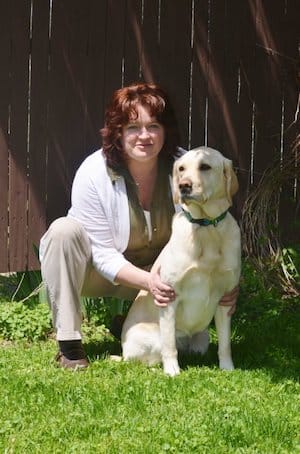
Carrie Bowgren
Carrie Bowgren is a Veterinary Practice Manager at Lake Road Animal Hospital in Horseheads, NY. Lake Road Animal Hospital is a 5 doctor, small animal, privately owned veterinary practice located about 45 minutes south of Cornell University.
In her role, she is responsible for bringing her Practice Owner’s vision of the practice to life. Their goal is to provide an elevated standard of veterinary care to every patient, and Disney-level customer service to every client.
Carrie’s personal passion has been to develop veterinary staff. Over the past twelve years, Carrie has created a work environment and built a team that allows Lake Road Animal Hospital to pamper their patients, clients, and one another.
Carrie grew up in Owego, NY, which was named the “Coolest Small Town in America” in 2009 by Budget Travel Magazine. She graduated from Binghamton University and returned to Elmira College to earn her provisional certification in Secondary Education (Biology).
While attending Elmira College, she worked as a veterinary receptionist. After teaching for a single year, Carrie returned to the veterinary world she had fallen in love with prior to teaching. She has now been managing veterinary practices for over 23 years.
Outside of the veterinary world, Carrie and her fiancé (a chemist and home brewer) are avid craft “beer-cationers” visiting craft breweries all over New England. They share their home with two dogs, Porter and Taylor.
Carrie’s daughter Lauren is a recent graduate of SUNY-Cortland’s business economics program. She just moved into her own home where she single-handedly prepared her first Thanksgiving meal for the entire family (with only a few hundred text messages sent to mom for turkey advice!)
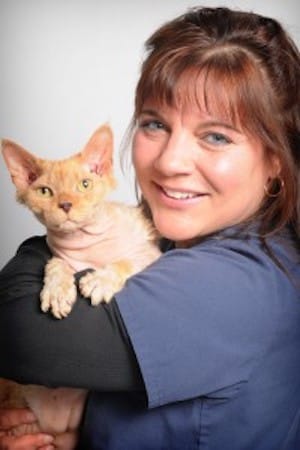
Katerina Cavanagh, CVT
Kathy Cavanagh graduated from Becker College with a degree in Veterinary Technology. Soon after graduating, she joined Central Hospital for Veterinary Medicine in New Haven, CT as a certified veterinary technician and has worked primarily in emergency medicine since that time. She has worked in many different capacities at the hospital over the years including Head Radiology Technician and Operating Room Technician. While working as an emergency room technician, Kathy realized that her true passion was working with pet owners.
Kathy has been the Client Care Manager for the past 15 years overseeing the flow of patients through the hospital and helping families navigate the medical treatment of their pets. Central Hospital has grown into a large emergency and specialty practice recognized as a Level One Trauma Center by the Veterinary Emergency and Critical Care Society.
In her role as the Client Care Manager, Kathy embraced the use of pet insurance early on as a valuable resource for providing the highest standard of care to sick and injured pets and has developed practice procedures that maximize the use of pet insurance policies for her practice. She signed Central Hospital on with VetBilling to give families an additional resource to provide care for their sick or injured pets. Since then, VetBilling has played a significant role in elevating the care the hospital is able to provide.
In addition to her position at Central Hospital, Kathy has served as a program coordinator for the New Haven County Veterinary Association and is a founding member of the Connecticut Veterinary Technician Association. As a veterinary medicine “lifer,” Kathy likes to think she has “seen it all” but every week seems to prove her wrong. Now that her two boys are on their own, Kathy spends her free time enjoying her empty nest with her husband, Bob, her perfect terrier, Gurdy, and two orange tabby cats she absolutely adores. She also spends a considerable amount of time protecting her small flock of chickens from the hundreds of things that want to kill them and planning adventures around the world that almost always center in some part on seeing as many animals as possible!
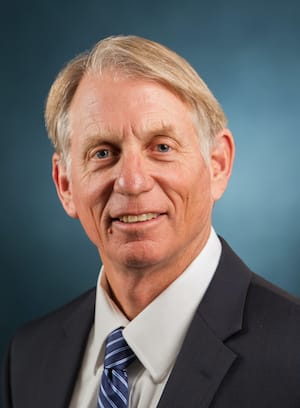
Michael Dicks, PhD
Dr. Michael Dicks has been providing economic and business analytics consulting and expert witness services as president of AEConsulting (a group of university faculty) since 1996. He joined Erupt LLC, a veterinary research and outreach firm, in April 2018 as Chief Data Human, to assist in the development of tools for veterinary students, practitioners and consultants to aid in the enhancement of personal and business financial performance. He also joined Calico Financial as Chief Economic Advisor in June of 2018 to assist in the development of financial tools for the improvement of veterinary practice financial performance.
Dr. Dicks earned a BS in biochemistry and animal science from California Polytechnic State University, and MS and Ph.D. in agricultural economics from the University of Missouri. His PhD research launched the Conservation Reserve Program.
Between undergraduate and graduate degrees, he was a Peace Corps volunteer in Kenya, a high school chemistry teacher who started a rural cooperative to develop appropriate energy and water systems in rural areas of Kenya.
After completing his Ph.D. he was employed by the USDA’s Economic Research Service as a conservation and environmental policy analyst and started the USDA’s aquaculture and new crops and products research programs.
Dr. Dicks was hired by Oklahoma State University in 1989 to teach, conduct research and provide extension services in food and agricultural policy. He started and was the Director of the Great Plains Policy Center and retired from OSU in 2013 as the Wes and Lou Watkins Chair of International Trade and Development and Director of the Center for International Trade and Development.
Dr. Dicks served as the Director of Veterinary Economics at the American Veterinary Medical Association from 2013 to 2018. At AVMA he developed an extensive data analytics program in the veterinary profession to improve the performance of the veterinary markets, the profitability of veterinary practices and the care provided to all animals. He created the AVMA Veterinary Economic Summit to provide an annual summary of the most recent research in economic analysis related to the veterinary profession. His most important contribution was bringing stakeholders together to cooperate on data collection and analysis.
Dr. Dicks has produced over 500 written documents including journal articles, congressional testimonies and research reports. He has been a sought-after speaker both domestically and internationally and has made well over 1000 presentations. He is also the owner of a livestock operation (Cimarron Dunes) and a real estate firm (Little Dickens Properties).
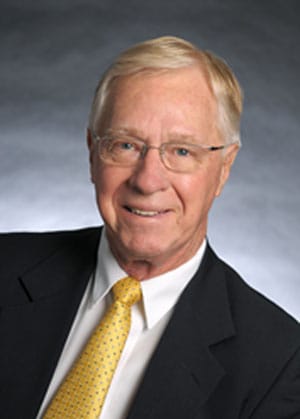
Kent A. Kruse, DVM
In a recently published article, I wrote about my personal awakening to what we now recognize as the human-animal bond. I related that, as a new veterinarian in 1963, I considered myself to be an “animal mechanic”. It was my responsibility to ‘repair’ sick or injured animals. As Christmas approached that first practice year, I was surprised and overwhelmed with gifts from grateful pet owners expressing their appreciation for my efforts in administering to their pet “children”. That outpouring of gratitude helped me to understand that, as a veterinarian, I was more directly administering to the pet parent by keeping their pets healthy and keeping the bond between the pet and the pet owner intact.
My career since that time has been either directly or indirectly dedicated to the bond. My practice experience started as an associate veterinarian, progressed later with the establishment of a solo practice that grew to a busy, three-veterinarian practice. Our team was well known for our orthopedic skills dealing with fractures, spinal disk disease, and cruciate surgery. We were proud to have performed the first canine total hip replacement in the State of Wisconsin.
In the early 1980s, I hired a programmer to develop computer management software for my veterinary practice. That software evolved into what is now known as Impromed’s Infinity practice management program, which is generally recognized to be the premier, state-of-the-art veterinary management software.
My first attempt at retirement was in 1996 but was delayed when I was asked to assist in the development of a new pet health insurance company. That began an entirely new and wonderful career. I finally retired in 2013, after working at an executive level for three different pet health insurance companies.
On my consulting business card, I describe myself as a pet health insurance provocateur. It is my firm belief that when the veterinary profession can enthusiastically embrace the concept of pet health insurance, more veterinarians will be able to reach their full earning potential, employee turnover will be significantly reduced, new veterinary graduates can more easily re-pay their education loans, and the incidence of economic euthanasia will be reduced. The effects of economic euthanasia are rarely mentioned, never debated, or challenged for what they are…immoral, unethical, anti-bond, and destructive to the veterinary soul.
In recent years, I have been privileged to also appreciate the value of professionally managed payment plans and pet savings accounts. These tools are particularly useful for pet owners who may not be able to afford pet insurance premiums. It is my hope that, as a member of VetBilling Board of Advisors, I can help elevate the discussion about economic euthanasia and create a heightened awareness that there are effective tools to help reduce the incidence of this painful problem.
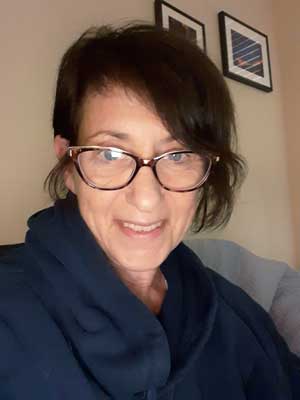
Beth Meyers
Beth Meyers worked in client services and operations in the investment management world for many years. Stepping away from the corporate world 8 years ago, she combined her client service and operations skills with her interest in dog training and behavior and became the administrative assistant for a veterinary behaviorist. From there it was a short leap into a large specialty and emergency veterinary practice, working in both their client and financial services departments.
Working in a specialty and critical care facility is where Beth first observed the painful gap between what some clients were able to afford and the cost of medical care needed.
Four years ago, Beth moved to a new 24/7 emergency facility, Frisco Emergency Pet Care. The practice owners provided a more progressive vision for a growing practice, from their employees to the patients and families they serve. It is there she was introduced to VetBilling. Emergency care means unexpected costs for care that is needed right away. Being able to offer clients an affordable payment plan makes a positive difference in the outcome for many of Frisco’s patients, where VetBilling has become an invaluable program.
Away from the veterinary hospital, Beth remains involved in the dog behavior and training world. It’s rewarding for her to help families and their dogs build relationships and strengthen communication, which may ultimately prevent many dogs from ending up in rescues and shelters.
Beth is also mom to two rescue dogs of her own – Speedy, a red heeler/Border Collie mix, who loves chasing after balls and is her “heart dog.” Maya is Beth’s blue heeler mix, who joined the family earlier this year. Maya is squirrel-obsessed and would climb trees to find them if she could. She’s also a sweet girl who does have an “off switch” when squirrels aren’t around!
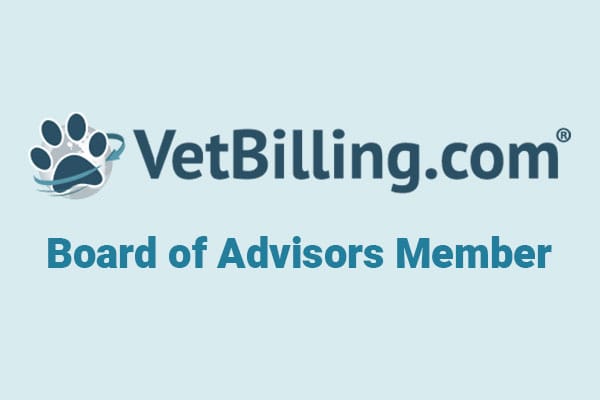
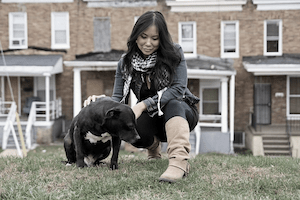
Christine Sandberg
Christine Sandberg is the Founder of the Maryland-based non-profit Rescue Well. Together with her team, they have answered over 100,000 crisis calls and over 25,000 re-home requests from pet owners, many of whom face economic euthanasia or surrendering their pets because they lack the resources to keep them. Outside of this work, Rescue Well partners with area Crisis Teams and first responders to provide interim support for owners as they manage through crisis.
Christine is also the Founder of the Coalition of Outreach and Rescues (CORE), a collective of over 125 organizations that serve to place and keep pets in safe and healthy homes. She also offers workshops to animal rescues and shelters to share insights she’s gleaned from her past 12 years managing their high- volume Crisis Hotline.
In addition to her own organizations, Christine is the Vice President of the Senior Dog Sanctuary of Maryland’s Board of Directors.
In addition to her nonprofit work, Christine has worked in the telecom industry for over 25 years, where she’s held positions in sales, training, and performance management.
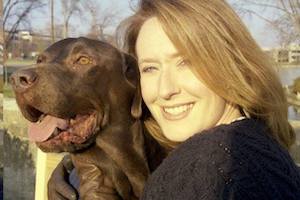
Carol Smock
By day, Carol Smock is a member of the Senior Leadership Team at Simplex Group, a Transportation Services provider based in Miami FL. Simplex Group is a minority held business providing America’s truck drivers the services needed to maintain compliance with all laws over the road. She is the Project Management Office Director and leads a team of six professionals.
In her spare time, Carol leads Brown Dog Foundation, a small non-profit dedicated to ending economic euthanasia by bridging the gap between the cost of medical care and saving the family pet. Since its inception in 2006, Brown Dog Foundation has helped save more than 2000 family pets.
Through the work that she does with Brown Dog, Carol is dedicated to creating a program that will live beyond her lifetime.
VetBilling and Brown Dog Foundation joined forces in 2016, because the two organizations have a similar mission. Brown Dog began testing the VetBilling program in late 2016 by extending payment plans to just 3 families. In 2017 and 2018, payment plans were offered to 8 more families, and after seeing satisfactory repayment rates, Brown Dog once again expanded the payment plan program. The VetBilling Repayment Program is now well established among Brown Dog’s assistance programs.
Each year, the Foundation strives to help as many as 20 families by allowing them to repay grant money through the VetBilling platform.
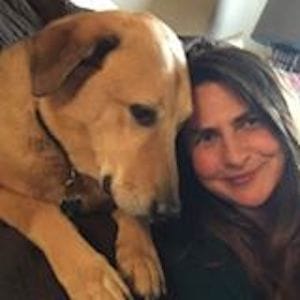
Aimee St. Arnaud
Aimee St. Arnaud is the former Director of National Veterinary Outreach for Best Friends Animal Society, where she focused on how to increase access to spay/neuter and veterinary care in underserved communities.
Prior to her tenure at Best Friends, Aimee was Director of Programs at the ASPCA Spay/Neuter Alliance, where she handled curriculum design and program oversight that trained 1,000 veterinary medical professionals a year.
She also worked as a Program Manager at PetSmart Charities, where she gave out $15 million a year to organizations helping dogs and cats.
As if this list of accomplishments isn’t long enough already, Aimee was also a co-founder of Ohio Pet Fund, an organization that provides grants for pet care by raising funds through sales of specialty license plates.
Aimee has experienced the opening of a spay/neuter clinic from both sides, having founded Humane Ohio, a low cost spay/neuter clinic performing 19,000 surgeries annually.
Seeing the need for increasing access to veterinary care, Aimee is currently a business partner in two full-service veterinary clinics in Ohio and North Carolina that focus on removing barriers to care and building community partnerships.
In 2021, Aimee founded the Open Door Veterinary Collective, a nonprofit organization dedicated to teaching a replicable business model allowing for-profit, nonprofit, and government-affiliated veterinary hospitals to expand access to care while remaining sustainable with a net positive revenue. The model is based on that used by Aimee’s clinics in North Carolina and Ohio.
Aimee is excited to join the VetBilling Advisory Board because of a shared vision for finding creative solutions to the rising cost of veterinary medicine. She loves VetBilling’s fresh approach to helping veterinary clinics not have to turn clients away. Aimee believes that VetBilling is a valuable, authentic partner for veterinary clinics and pet owners alike.
In her spare time, Aimee enjoys helping rescue wildlife (especially ducks!) and being in nature whenever she can, whether it’s biking, hiking, or kayaking.
